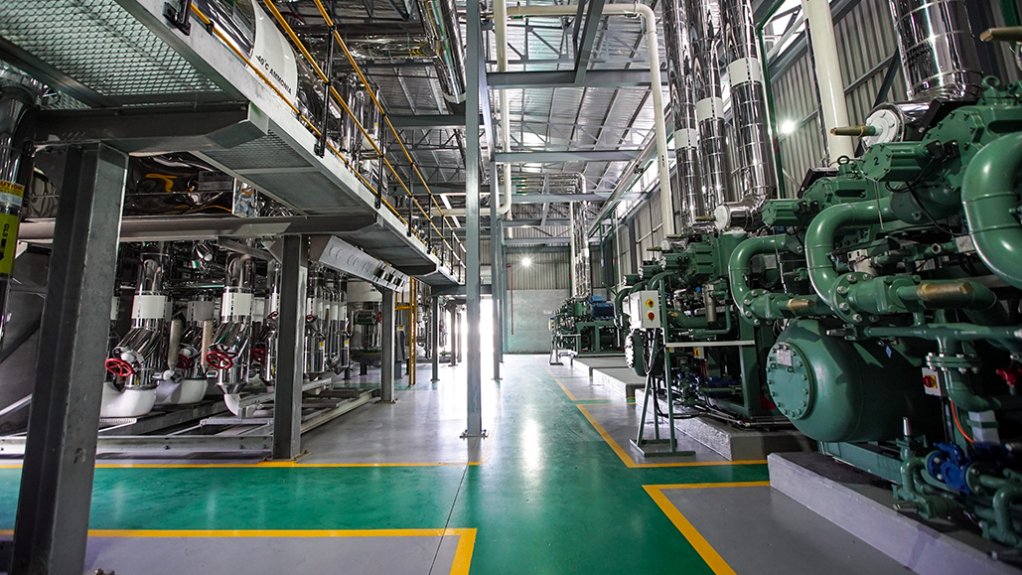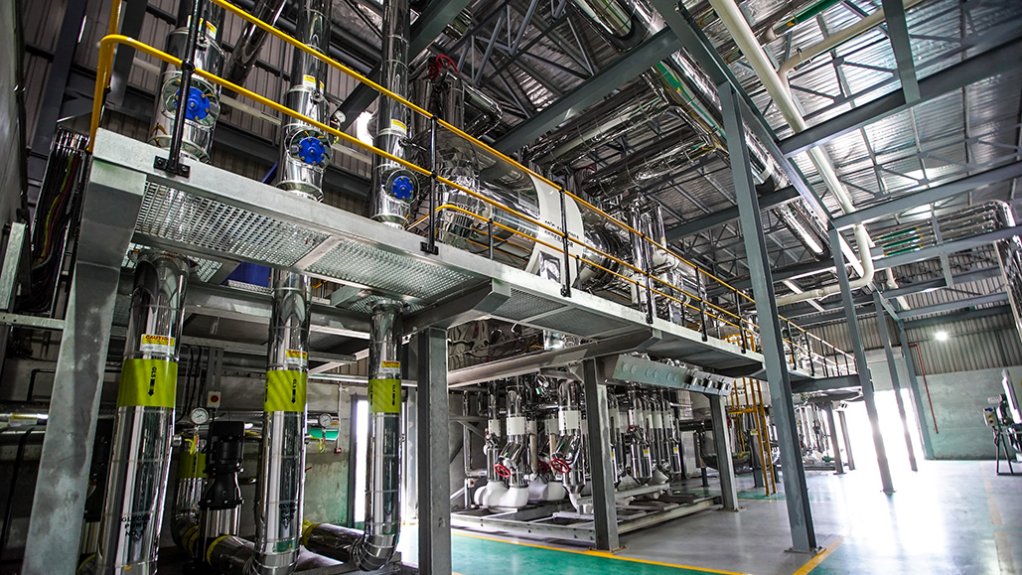Refrigeration services provider Energy Partners (EP) Refrigeration GM Dawie Kriel stresses that constraints in the local market offer the company opportunities to provide innovative refrigeration and cooling solutions to help local companies mitigate loadshedding and meet economic challenges.
One of the solutions the company provides is cooling as a service (CaaS).
This involves investing in, owning, operating and maintaining refrigeration assets for customers off balance sheet, providing funding and long-term commitment for plant efficiency and reliability.
EP Refrigeration monitors its performance and proactively manages refrigeration asset maintenance to ensure optimal efficiency.
Kriel states that CaaS – also referred to as the servitisation model – is not widely known, and EP Refrigeration is one of the few companies in the world and the only one in South Africa to offer this service.
Developed over the past seven years, this offering helps customers to focus more on their core business, while aspects related to cooling, refrigeration and electricity are outsourced to specialists such as EP Refrigeration, Kriel points out.
“There are numerous opportunities to help companies deal with these complex systems and allow customers to focus on their business priorities, while we can take care of more technical issues.”
Servitisation Model
CaaS is an agreement which sees EP Refrigeration agreeing to generate and sell cooling to a client.
The client generally grants permission to the supplier to, at its own cost, erect and operate a refrigeration plant on the client’s premises.
The cooling generated is then sold to the client at a preagreed tariff with fixed and variable components – which is typically lower than the total lifecycle cost of client generated cooling.
“Servitisation means that we are selling an output instead of a product, so we send a bill to our customers only for the cooling they consume, at the agreed tariff. For taking the additional risk of guaranteed efficiency and uptime, we are compensated in a way that is mutually beneficial for us and the client.”
Kriel adds that technological advancements in data storage and algorithm calculations have made it possible to drive efficiencies, and it helps EP Refrigeration bill clients accurately through the company’s unique Cooling Meter.
He also stresses that CaaS is unique, as it enables EP Refrigeration to build and manage individual refrigeration systems to suit its customers’ specific cooling needs.
A similar concept, used in Europe, the Middle East and US, is District Cooling or Heating, which generally consists of one large central plant that provides heating or cooling for several homes or businesses at a set single temperature. CaaS, however, enables EP Refrigeration to create and manage temperature control systems for each specific user and their temperature requirements.
Further, he stresses that this solution can be beneficial for businesses that do not have the necessary capital to invest in and manage cooling and refrigeration applications or may want to focus their investment on core functions of production.
It also benefits companies that lack the technical skills and required capacity to manage these applications.
He also notes that because Energy Partners initially began with an investment focus and not as a pure technology provider, it was easier to convert to servitisation. EP Refrigeration is a subsidiary of the EP Group.
To fully exploit the CaaS investment opportunities, it was necessary to boost the company’s technical skills and capabilities, which are used to support offerings such as CaaS, and as such EP Refrigeration is now one of the biggest refrigeration contractors in South Africa.
Loadshedding Mitigation
Kriel also stresses that the current loadshedding situation and lack of energy supply is stunting the growth of the South African economy, particularly sectors that need refrigeration and cooling.
As such, the agriculture, and food and beverage industries, where interruptions to power supply for refrigeration and cooling systems can impact on the quality of products produced and transported, are feeling the brunt of loadshedding.
This comes in addition to challenges with infrastructure in South Africa, such as ports, road and rail, which make it difficult for food producers to transport fresh produce.
For these reasons, EP Refrigeration has developed a product where the company combines battery storage and solar generation systems with refrigeration systems under one contract.
“This provides our customers with solar-assisted and uninterrupted refrigeration, whereby the systems we provide through our outsourcing solution allow for power supply challenges to be offset with these applications. This can be significantly cheaper than using generators.”
This can also prevent the challenges that food and beverage producers have to deal with in terms of keeping temperatures consistent to store and process products, Kriel notes.
The company’s ability to provide energy efficient solutions can also help local businesses to save money, as energy efficiency is becoming more vital, owing to increasing energy prices.
“We drive efficiency on an every- five-second basis. We take the data f rom the refrigeration plant, evaluate the data and make sure that we run it at optimum efficiency, with five-second-interval analyses; this has a significant impact over time on maintaining peak efficiency while removing the risk from the client,” he concludes.
Edited by: Nadine James
Features Deputy Editor
EMAIL THIS ARTICLE SAVE THIS ARTICLE
ARTICLE ENQUIRY
To subscribe email subscriptions@creamermedia.co.za or click here
To advertise email advertising@creamermedia.co.za or click here















